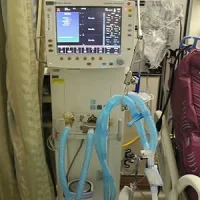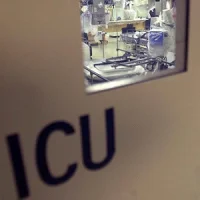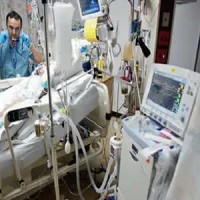Mechanical ventilation (MV) suppresses the mechanisms that heat and moisturise inhaled air; hence, humidification is mandatory during MV. However, a systematic review published in the journal Critical Care finds no clear advantages in terms of clinical outcomes for different humidification devices.
Gas delivered during mechanical ventilation must be warmed and humidified to avoid serious complications related to dry gases. Current humidification devices can be divided into active heated humidifiers (HHs), which are devices heated by warm water, and passive devices such as heat and moisture exchangers (HMEs), which capture the heat of exhaled air and release it at the next inspiration. HHs may result in increased airway hydration, decreased incidence of bacterial infection and work of breathing, while HMEs may increase the risk of airway occlusion.
In clinical practice, humidification during MV is widely accepted and applied; however, there is lack of consensus on the optimal device to humidify the airways. This systematic review and meta-analysis of randomised controlled trials (RCTs) aimed to evaluate the effects of HMEs and HHs in preventing artificial airway occlusion and pneumonia, and on mortality in adult critically ill patients.
Eighteen RCTs and 2,442 adult critically ill patients were included in the analysis. The results showed:
- No significant difference in artificial airway occlusion, pneumonia or mortality between HMEs and HHs.
- No effect of HHs with and without heated wire compared to HMEs; however, the incidence of airway occlusion was higher in HMEs compared with HHs with non-heated wire.
- Independently from the HH type, an advantage of HMEs in airway occlusion incidence was observed in studies with high incidence of pneumonia, and a trend towards favouring HMEs was observed for studies with prolonged MV.
"The choice of humidifiers should be made according to the clinical context trying to avoid possible complications and reaching the appropriate performance at lower costs. However, to help clinicians make the correct choice between HHs and HMEs, further high-quality RCTs are needed to evaluate the incidence of respiratory complications other than pneumonia, gas exchange and work of breathing when comparing the HH and HME devices," the study authors write.
Source: Critical Care
Image Credit: Rcp.basheer
References:
Vargas, maria et al. (2017) Heat and moisture exchangers (HMEs) and heated humidifiers (HHs) in adult critically ill patients: a systematic review, meta-analysis and meta-regression of randomized controlled trials. Critical Care. DOI: 10.1186/s13054-017-1710-5
Latest Articles
Pneumonia, mechanical ventilation, Humidification, heated humidifiers, heat and moisture exchangers
Mechanical ventilation (MV) suppresses the mechanisms that heat and moisturise inhaled air; hence, humidification is mandatory during MV. However, a systematic review published in the journal Critical Care finds no clear advantages in terms of clinical ou










